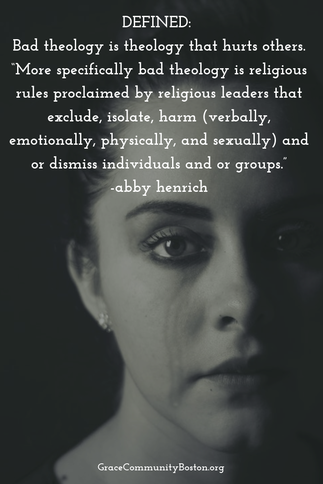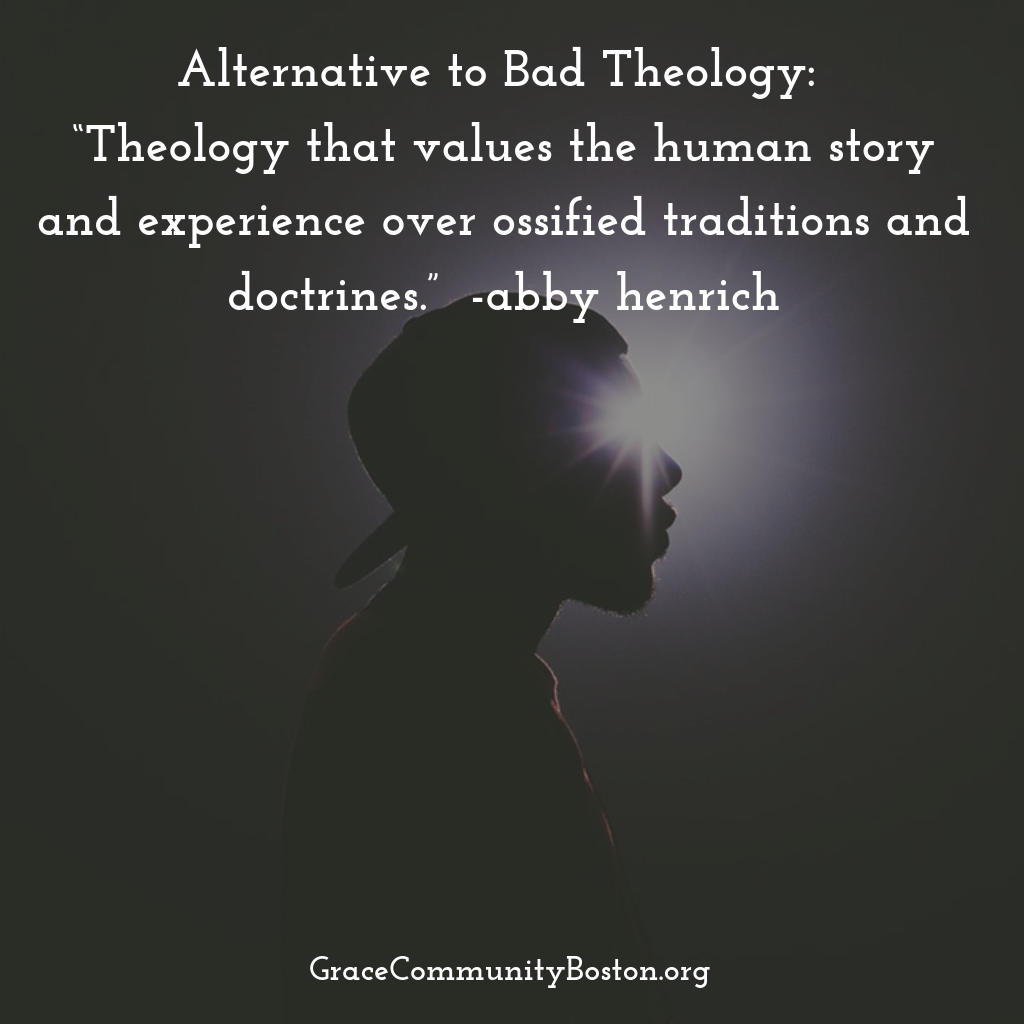 Bad theology. What’s that? Bad theology is theology that hurts yourself and others. We’ll begin with the word theology, which scares some, but shouldn’t. Theology simply means “talking about God”. Bad theology, however, does not simply mean "bad talking about God." I have borderline bad talks with God all the time. For example, why in *bleep* are children being killed in schools like America has become some sick target practice? Deep down I know God isn’t responsible for school shootings, but I still have some pretty angry words for God, wondering why things aren’t shaping up better in this broken world. This is not bad theology. This is lament. There is a significant difference. Lament is good. The source of bad theology is distrustful religious leaders who desperately want to protect their power. The powerful use bad theology to control the powerless by enforcing uniformity. To expand our definition: Bad theology is religious rules proclaimed by religious leaders that excludes, isolates and harms. Bad theology is religious teaching that dismisses entire classes of people. And bad theology leads to verbal, emotional, physical, and sexual harm. Bad theology in itself has no power. Yet when these “rules” are institutionalized by the church, and often in the home, people confuse their religious leaders with God. These harmed individuals or groups feel God has rejected their identity and human story. This is exactly why naming bad theology is crucial work in the christian community. For centuries, the church and the “christian” home have denied people the experience of discovering God in the intimate unfolding of their story. We must return to just how those in power institutionalize rules to enforce their narrow, privileged worldview. Using religious language, these rules are referred to as doctrines. Doctrine is any set of beliefs taught by a church. Because we call these rules doctrine, instead of just plain old rules some human thought up, they take on a powerful authority. When these rules are institutionalized by the church, they are elevated to unchanging, immutable doctrine. These rigid rules, created by those in power, then shape our belief systems, hence the way we talk about God. Bad theology denies human experience, and the universal love of our grace-filled God. Instead, bad theology enforces institutional rules that preserve the privilege and power of those in power. I am a pastor of a progressive, emergent church that embraces only one rule: wear clothes to church, please. So why am I bothering with this conversation? There are many reasons. As engaged christians we should care about the repercussions of bad theology on God’s beloved children. But there’s a more important reason: spiritual abuse. Over the past 15 years of my ministry, an astounding number of individuals have shared with me their stories of spiritual abuse. Through heartbreaking stories, they have revealed their all too common stories of sexual, verbal, emotional, and physical harm inflicted due to doctrine. These stories are myriad: Children who were told to respect their horribly abusive parents, women browbeaten into subservience by their fathers and husbands, LGBTQ+ folks who were excluded from participation in their community and shamed for their identity, young children sexual abused by their religious leaders and sworn to secrecy, a woman shamed in front of her community for having sex before she was married, a young man who was told his entire family was destined for hell unless he converted them, parents who were instructed to beat their special needs child so that he would act like other kids, a young woman whose gifts for ministry were abundant, but was told she couldn’t preach because she was the wrong gender, a young man who was beaten regularly by his religious leaders for misbehaving, and more. Each story I have borne witness to was the result of bad theology. Each person believed that they deserved the abuse they endured. Each person believed that their suffering was God’s will. The first step to ending spiritual abuse is to name bad theology. The second step is to replace bad theology with an alternative: progressive, inclusive theology--theology derived from and consistent with the love teachings of Jesus Christ. Naming bad theology frees us to embrace the life giving love of God. Naming bad theology encourages us to shed the limits of human rules and embrace the limitlessness of God’s kingdom. Naming bad theology helps us to value the human story over ossified doctrine.
0 Comments
|
Categories |

 RSS Feed
RSS Feed